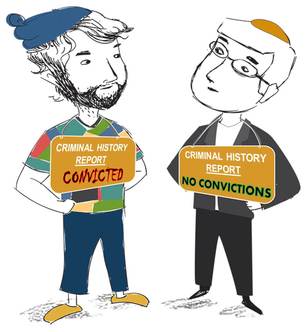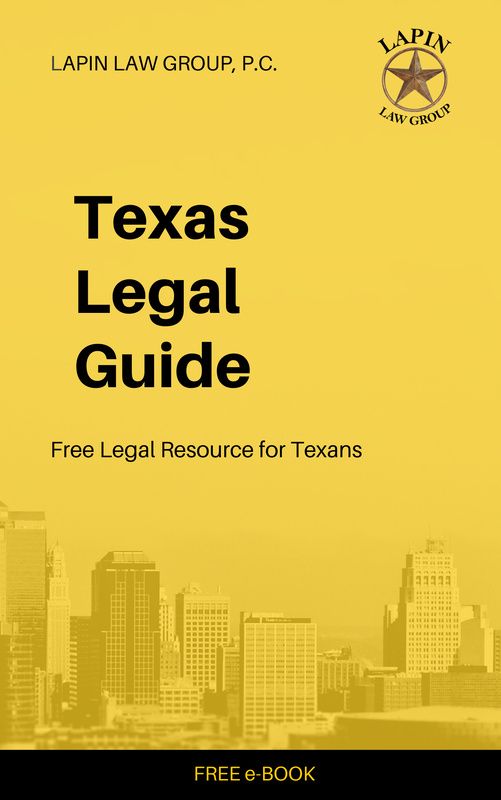The overwhelming majority of us want to live and work in a safe and orderly society where people are free to go about their legitimate business without being victimized by criminals. Thus, we see that “law and order” (not just the television show, but also the enforcement of laws and punishment of crime) is a good thing.
We also want a government that administers the laws, not just in a fair and impartial manner, but also in a manner that strikes an appropriate balance between what is in the best interest of society and what is in the best interest of the criminal defendant. That is why we call it the criminal “justice” system, not the criminal “vengeance” system.
It is not uncommon, nor has it been uncommon throughout the generations, for a young person to run afoul of the law on a single occasion, only to turn his life around and become an “upstanding” and productive member of society. This is the type of person for whom “deferred adjudication” was intended.
The concept of deferred adjudication, as it is practiced throughout the United States, generally works as follows:
We also want a government that administers the laws, not just in a fair and impartial manner, but also in a manner that strikes an appropriate balance between what is in the best interest of society and what is in the best interest of the criminal defendant. That is why we call it the criminal “justice” system, not the criminal “vengeance” system.
It is not uncommon, nor has it been uncommon throughout the generations, for a young person to run afoul of the law on a single occasion, only to turn his life around and become an “upstanding” and productive member of society. This is the type of person for whom “deferred adjudication” was intended.
The concept of deferred adjudication, as it is practiced throughout the United States, generally works as follows:
|
Vertical Divider
|
An adult, but youthful, first-offender, who typically committed a crime that is not too serious (perhaps surprisingly, many crimes that are classified as “felonies” fall into this category) is arrested.
The prosecutor realizes that the defendant is probably not a “bad kid” who is just beginning a life of crime, but rather, is a kid who probably just made a one-time, big mistake. The prosecutor decides to give the youthful defendant an opportunity to accept responsibility for this big mistake, while at the same time, allowing the defendant to avoid the lifelong consequences of a criminal conviction. The consequences of an adult criminal conviction can include an inability to obtain professional licenses, many positions of employment, and the loss of civil rights such as voting and firearms rights. |
Vertical Divider
|
The agreement between the prosecution and the defense goes something like this:
|
Vertical Divider
|
If the defendant successfully completes a period of probation, and perhaps pays a small fine, the criminal charge against the defendant will be dismissed, without a conviction.
But if the defendant does not successfully complete the period of probation, or does not pay the fine, if any, then the court can find the defendant “guilty” of the offense — without the need for a trial — and, like in the board game Monopoly, send the defendant directly to jail, without passing “Go” (and, of course, without a dismissal of the criminal charge). |
Vertical Divider
|
Because the ultimate outcome of the case — dismissal or conviction — will not be decided until the defendant has had an opportunity to successfully complete a period of probation (and pay any related fine), adjudication of the case is deferred until it can be determined whether, in fact, the defendant did successfully completed probation. Hence the name “deferred adjudication.”
In Texas, however, it works a little, or perhaps a lot, differently.
Historically, most Texas cases where defendants have agreed to deferred adjudication have resulted in a conviction — not a dismissal of the criminal charges — after successful completion of probation (known in Texas as “community supervision”).
The only thing a Texas defendant typically receives after successfully completing probation is a “release” from probation and a criminal conviction. Not a very good deal, at all.
Not surprisingly, many Texas defendants who agreed to deferred adjudication reasonably, even if erroneously, thought that the criminal charges against them would be dismissed if they successfully completed the period of community supervision (probation).
If you are a Texas defendant who agreed to deferred adjudication and you are still in the deferral period, that is, you are still on community supervision (probation), it may still be possible to have your case dismissed. But it probably won’t happen automatically.
If you were a Texas defendant who has already been “discharged” from community supervision, a thorough examination of your court file will be needed to determine whether your case resulted in a conviction and, if so, what options might still be available to you.
In Texas, however, it works a little, or perhaps a lot, differently.
Historically, most Texas cases where defendants have agreed to deferred adjudication have resulted in a conviction — not a dismissal of the criminal charges — after successful completion of probation (known in Texas as “community supervision”).
The only thing a Texas defendant typically receives after successfully completing probation is a “release” from probation and a criminal conviction. Not a very good deal, at all.
Not surprisingly, many Texas defendants who agreed to deferred adjudication reasonably, even if erroneously, thought that the criminal charges against them would be dismissed if they successfully completed the period of community supervision (probation).
If you are a Texas defendant who agreed to deferred adjudication and you are still in the deferral period, that is, you are still on community supervision (probation), it may still be possible to have your case dismissed. But it probably won’t happen automatically.
If you were a Texas defendant who has already been “discharged” from community supervision, a thorough examination of your court file will be needed to determine whether your case resulted in a conviction and, if so, what options might still be available to you.
Lapin Law Group is Your Texas Firearms Law Firm Who Supports the Second Amendment and All That it Stands For
|
For more information on the Criminal Defense and Firearms Law legal services available through Lapin Law Group, watch our popular video below.
|
Learn how you can have a Lawyer Available Whenever to review your legal documents and answer your legal questions. Watch our popular video below.
|
|
|
|
GET A FREE e-BOOK
Disclaimer
The information contained in this publication is provided by Lapin Law Group, P.C., for informational purposes only and shall not constitute legal advice or serve as the basis for the creation of an attorney-client relationship. The laws and interpretation of laws discussed herein may not accurately reflect the law in the reader’s jurisdiction. Do not rely on the information contained in this publication for any purpose. If you have a specific legal question, please consult with an attorney in your jurisdiction who is competent to assist you.
Lapin Law Group, with its principal office in the Dallas-Fort Worth Metroplex, serves all 254 Texas counties.
Lapin Law Group, with its principal office in the Dallas-Fort Worth Metroplex, serves all 254 Texas counties.



